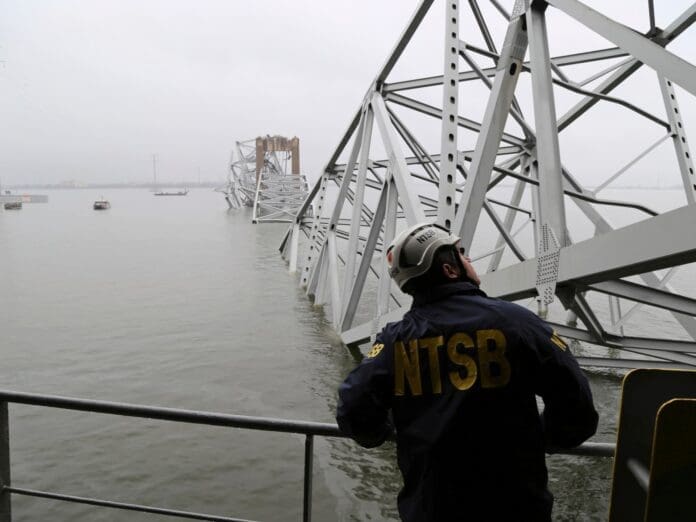The collapse of a major bridge in Baltimore earlier this week has resulted in the suspension of vessel traffic at the Port of Baltimore, one of the busiest harbours in the United States, until further notice.
Maryland is set to receive initial federal funding of $60 million to aid in clearing the debris from the disaster. This emergency relief funding will cover mobilisation, operations, and debris recovery efforts.
The collapse occurred when a container ship struck one of the support pillars of the Francis Scott Key Bridge in Baltimore, causing it to collapse. Tragically, cars that were on the bridge fell into the river and six workers are presumed dead. The port’s vessel traffic has been suspended since the incident.
The Port of Baltimore plays a significant role in trade, handling a wide range of cargo including automobiles, machinery, and coal. The port’s closure is estimated to cost the economy up to $15 million per day and is expected to have an impact on insurers and the supply chain.
While some businesses using the port have reported minimal short-term impacts, others anticipate delays and supply chain disruptions. Baltimore-bound ships and containers are being rerouted to other ports along the East Coast.
Despite the challenges posed by the bridge collapse, experts believe that the economic implications will be more significant for the Baltimore economy than nationally. Additionally, global shipping disruptions in other regions are also affecting supply chains and pricing.
Overall, experts expect the fallout from the bridge collapse to be temporary compared to other ongoing supply chain challenges worldwide.
